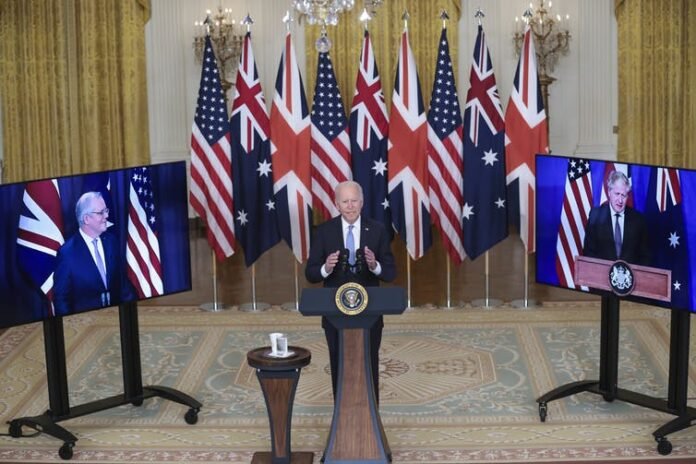By Renae Barker, The University of Western Australia
Throughout the COVID-19 pandemic, places of worship in Australia have faced significant restrictions. These have included limits on the number of people who can attend, bans on singing and closure altogether.
This has impinged upon people’s freedom of religion. However, as with other COVID restrictions, religious people have generally accepted these restrictions to protect public health.
Now, there may be light at the end of the tunnel for religious institutions, including allowances for certain numbers of unvaccinated people to attend places of worship. But since the states and territories will set their own re-opening rules for public venues, religious leaders still face uncertainty.
If places of worship remain barred from allowing entry to the unvaccinated in some places, religious leaders may be forced to turn them away, putting them in an uncomfortable position.
This brings up an interesting legal question about how to balance freedom of religion against public health protections.
How are NSW and Victoria handling it?
At 70% full vaccination for adults, places of worship in NSW will be able to open for vaccinated people, with certain restrictions on capacity, and no singing.
Once the vaccination rate reaches 80%, however, the unvaccinated will be able to attend public worship, with the same capacity limitations.
They will not be allowed into other public venues, such as restaurants, stores, hairdressers or gyms, until December 1 at the earliest. And the government has warned businesses may continue to restrict access for those who are unvaccinated.
Victoria has taken a different approach. At the 70% full vaccination rate, places of worship will be able to hold outdoors services with a cap of 50 vaccinated people, at one person per four square metres. If the vaccination status of attendees is unknown, the attendance cap will be 20.
At 80% full vaccination, indoor worship will be permitted for the fully vaccinated with a cap of 150 and social distancing.
Outdoors worship will be allowed for up to 500 vaccinated people. If the vaccination status of worshippers is unknown, the 20-person cap and one-person-per-four-square-metre rule will remain.
It remains to be seen how the other states and territories will handle these decisions when they release their reopening plans.
Why can the unvaccinated go to church but not the footy?
The NSW government has not given an official reason for opening churches, mosques and temples to the unvaccinated, but not entertainment or sports venues.
The likely reason is freedom of religion.
Many religions involve an element of communal worship and public gathering. COVID restrictions have significantly restricted these practices. In fact, public gatherings have been completely banned under strict stay-at-home orders. As a result, many religions have moved to online or streaming-based worship.
Freedom of religion is well recognised in international law as a fundamental human right. Article 18 of the UN’s International Covenant on Civil and Political Rights says freedom of religion includes the right
to have or to adopt a religion or belief of his choice, and freedom, either individually or in community with others and in public or private, to manifest his religion or belief in worship, observance, practice and teaching.
But there are limits to this freedom. The same covenant says freedom of religion
may be subject only to such limitations as are prescribed by law and are necessary to protect public safety, order, health, or morals or the fundamental rights and freedoms of others.
There is a big question, then, for state premiers as they begin to lift COVID restrictions: to what extent are the restrictions on religion necessary to protect public health?
Because views about which COVID restrictions are necessary to protect public health have varied significantly across states and territories, we should expect different approaches to the re-opening of places of public worship.
Read more: How COVID-19 could impact travel for years to come
Few challenges to vaccination rules
This could cause confusion, but it is unlikely we’d see many legal challenges to different re-opening plans.
In Australia, there are few avenues to challenge restrictions on freedom of religion. The constitution prohibits the federal government from making laws to prohibit the free exercise of religion. However, COVID restrictions are imposed by state and territory governments. The freedom of religion provision in the constitution does not apply.
As such, the main legal protections for freedom of religion in Australia are religious exemptions and anti-discrmination law.
There are a few medical exceptions available for people who cannot get a COVID vaccine, but it is highly unlikely exemptions would be given to those who object to vaccination on religious grounds.
There is currently no religious exception for childhood vaccination programs under the federal “no jab, no pay” and state “no jab, no play” policies. In the case of vaccines, religious freedom is outweighed by the need to protect public health.
Anti-discrmination law is also unlikely to provide an avenue to challenge vaccine mandates, passports or bans on unvaccinated people from places of worship.
In determining whether or not there has been discrimination, the courts will consider what is reasonable in the circumstances. Given the very real and significant public health risk posed by COVID, it is likely restrictions on those who are not vaccinated will be considered reasonable – at least in the short term.
This may change if the health risk posed by COVID changes.
Concern from religious leaders
Some religious leaders have expressed concern about the new rules on reopening places of worship. As Bishop Paul Barker from the Anglican Diocese of Melbourne put it, the rules could turn those who don’t show proof of vaccination into “the lepers of Jesus’ day”.
Religious leaders may be forced to turn the unvaccinated away. Such a position may be theologically very difficult for many religions.
As Archbishop Anthony Fisher from the Catholic Diocese of Sydney explained,
It’s our nature as churches to have our doors open to welcome all people. We have a commitment to that, so we’re talking to the government at the moment about how that’s going to work out.
However, it is important to note that, with a few exceptions, religious leaders have generally be supportive of vaccinations.
What does this say about freedom of religion in Australia?
Australians enjoy a comparatively high level of freedom of religion. In the 2019 Pew Research Centre’s index on global restrictions on religion, Australia scored among the least restrictive group of nations.
This is despite the fact Australia does not have a national bill of rights, nor is discrimination on the basis of religion unlawful at the federal level.
However, this does not mean Australia can be complacent. The lack of laws protecting freedom of religion means it falls to the political process to ensure this. This in turn depends on who is in power and the will of the majority.
In the same Pew report, Australia had a moderate score on social hostility towards religion. This means there is potential for greater legal restrictions to be introduced in the future.
The recognition of the need for religious freedom in the COVID re-opening roadmap is welcome. However, we must not lose sight of the fact that if the political process does not deliver legislated religious freedom, we have few legal avenues to challenge government restrictions when they do occur.
Renae Barker, Senior Lecturer, The University of Western Australia
This article is republished from The Conversation under a Creative Commons license. Read the original article.




